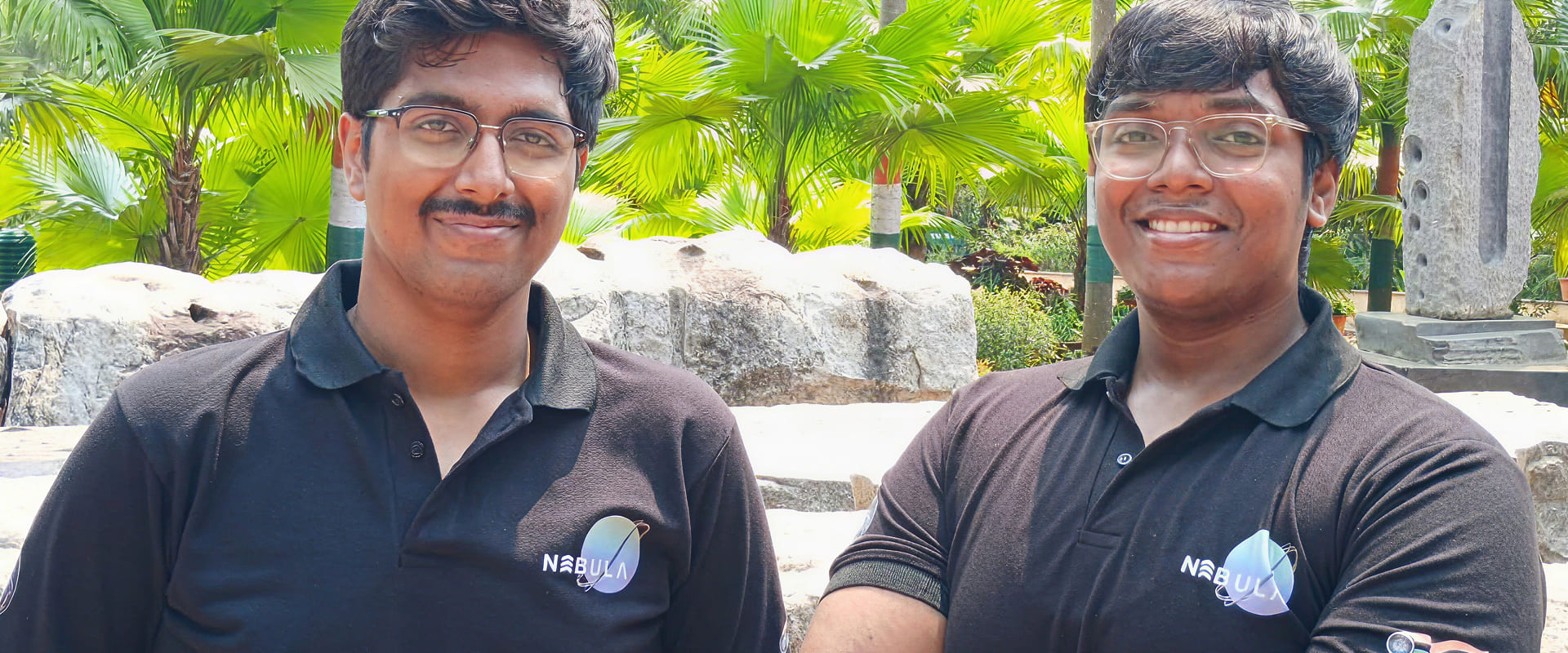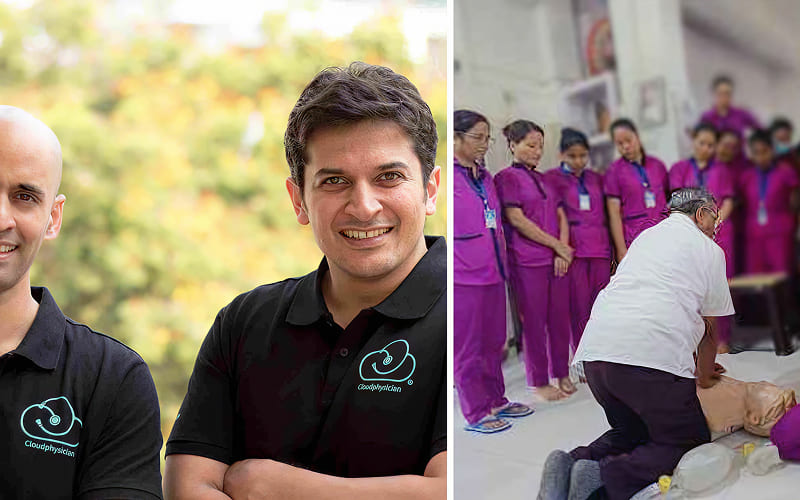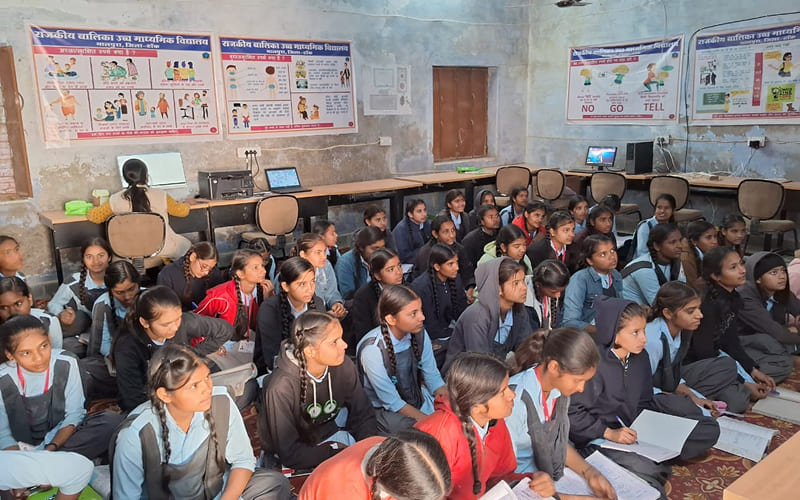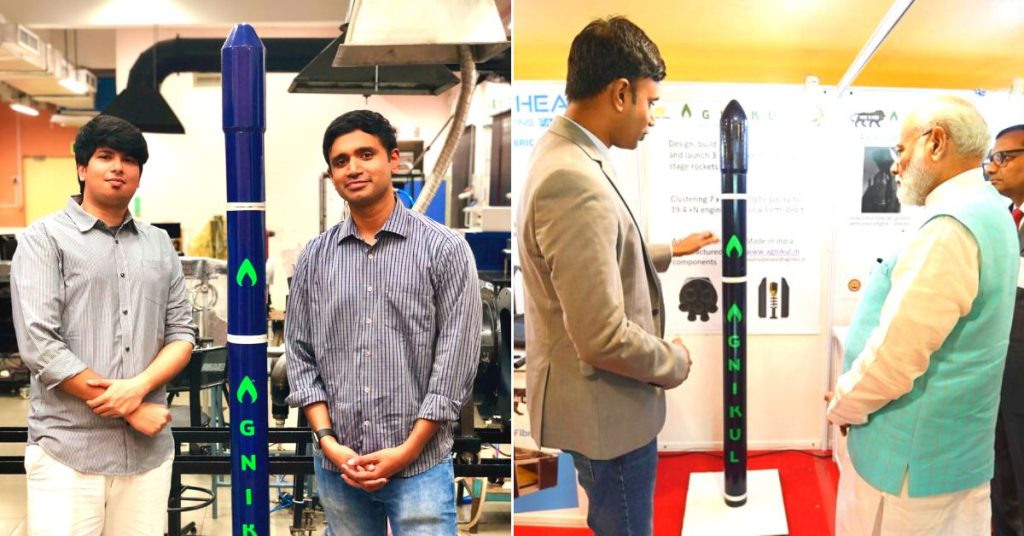
Building India's First Gamma-Ray CubeSat: A Leap Towards Affordable Space Technology
In a groundbreaking initiative, two college students from Odisha, India, are spearheading the development of the country’s first gamma-ray detecting CubeSat. Their work showcases the transformative potential of grassroots innovation in reshaping India’s future in space technology.
Updated on: 19 June 2025
Impact Metrics
99.8% size reduction
compared to existing CubeSats.
90–99%
reduction in cost.
Democratised and affordable
space research and gamma-ray detection.
The space industry is notorious for its high costs and monopolistic practices, often making it inaccessible to smaller players. Snehadeep Kumar and Mohit Kumar Nayak, who met at KIT University in Bhubaneswar, identified this barrier and sought to overcome it by developing CubeSats using locally sourced materials. Their approach involves using Aluminium 7075, which typically costs $180,000 through traditional suppliers, but can be procured for just Rs 700 locally. This strategy not only reduces costs but also exemplifies the potential for innovation in resource-constrained environments.
Pocket-sized satellites, planet-sized impact
Nebula Space Organisation’s CubeSat project is revolutionary in its design and cost-effectiveness. The team has achieved a 99.8% size reduction compared to existing CubeSats, making their version significantly more compact and affordable. By utilizing CNC machines for precision cutting and creating modular, plug-and-play prototypes, they have developed a system that can be controlled via a smartphone app. This innovation promises to provide real-time gamma radiation data and live camera feeds from orbit, all at a fraction of the traditional cost.
In addition to their scientific goals, Snehadeep and Mohit are committed to addressing the growing issue of space debris. Their CubeSats are designed with an end-of-life plan, incorporating solar sails to deorbit and safely disintegrate in the Earth’s atmosphere. This environmentally conscious approach ensures that their satellites do not contribute to the clutter in Earth’s orbit, aligning with global sustainability goals.
Despite their innovative progress, the team faces significant challenges, particularly in securing funding for full-scale production and testing. They have submitted their research to international bodies and are in discussions with potential investors. Their participation in the International Astronautical Congress 2024 in Milan marks a significant milestone, showcasing their work on a global stage.
The development of India’s first gamma-ray CubeSat directly supports national priorities under the IN-SPACe initiative and the Indian Space Policy 2023, which emphasize increased private sector participation and innovation in space. The project also resonates with the goals of Atmanirbhar Bharat and Viksit Bharat@2047, enabling self-reliance in high-tech manufacturing and satellite development. Its open-access data model complements the National Education Policy (NEP) 2020, fostering scientific literacy and student-led research through real-time engagement with space technology.
Nebula Space Organisation’s mission to make space research affordable and accessible has far-reaching implications for India and beyond. As the country’s space economy is projected to grow significantly, their work positions India as a leader in affordable space technology. By providing free real-time space data to students and educational institutions worldwide, they are not only advancing scientific research but also fostering a new generation of space enthusiasts and innovators.
Share Your Story Today, Shape Viksit Bharat Tomorrow
Got an idea, innovation, or experience that's making a difference? Share your story now and ignite India's transformation because your voice can drive the future forward!
BUILD YOUR OWN
BUILD YOUR OWN
How can I implement this innovation effectively?
How is this innovation being adopted around the world?
Where else could this innovation make an impact?
Who has seen real results from using this innovation?
What insights do experts share about this innovation?
What policies support or influence this innovation?
How could this innovation evolve in the future?
Is this innovation accessible and inclusive for everyone?
How can I contribute to or participate in this innovation?
What resources can help me explore this innovation further?
Handpicked stories tailored just for you
Explore stories that inspire, inform, and ignite new ideas across tech, innovation, and real-world impact


Tele-ICU Technology Revolutionizes Critical Care Access Across India
Bengaluru-based Cloudphysician is transforming ICU care with its Tele-ICU platform, connecting hospitals to remote intensive care experts 24/7. Co-founded by...
Read More




